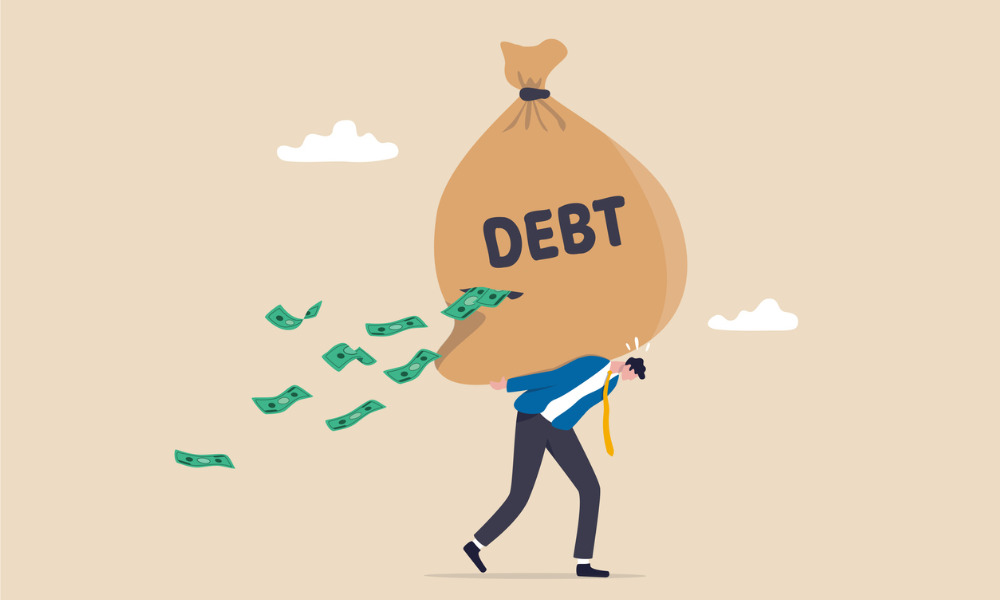Many reported growing concern and regret about their financial situation

Canadians’ sentiments towards the debt they currently hold have reached an all-time low, with the impact of inflation and higher interest rates leaving them feeling quite pessimistic about their current debt situation, according to MNP Debt.
In the latest edition of the quarterly MNP Consumer Debt Index, the metric recorded a decline of three points to 83, largely driven by growing concern and regret about debt. Approximately 63% of Canadians admitted that they are worried about their ability to repay their debts, and 47% said that they regret the amount of debt they have taken on.
The mounting impact on mental health cannot be underestimated, with Canadians saying that their less-than-ideal financial situation is causing them anxiety (60%), stress (59%), isolation (48%), or embarrassment (40%).
“Spending on credit has served as a relief mechanism for many to keep up with increasing costs, especially for lower-income Canadians. We see from the data that the burden of repaying that debt is exacerbating the growing financial strain for many households, particularly amid higher interest rates,” said Grant Bazian, president of MNP LTD.
“Most things cost more and debt repayment costs more. That leaves more Canadians feeling pessimistic about paying off debts, making ends meet, and about their financial futures.”
The Canadian economy is likely to see a moderate recession, stemming from rising debt service costs due to mortgage renewals, until mid-2024, according to a new analysis by Oxford Economics.
— Canadian Mortgage Professional Magazine (@CMPmagazine) January 4, 2024
Read more: https://t.co/rPXRtrWE5w#mortgagenews #economicoutlook #recession #mortgage
Interest rates are fuelling much of the anxiety, with nearly three in 10 (27%) Canadians saying that their ability to handle a one-percentage-point interest rate hike has worsened.
“With the cost of living on the rise, those households who were already overextended may feel they have to take on more debt just to afford basic necessities,” Bazian warned. “The results can be disastrous because they end up trying to fill a hole by digging another one.”
Over the past year, 18% of Canadians resorted to dipping into savings, home equity, RSP, or alternative methods to pay debt or day-to-day expenses.
“The added pressure of holiday bills coming due, mortgage renewals approaching, costs continuing to increase, and you can see how many Canadians could be approaching a crisis point both mentally and financially,” Bazian said.



